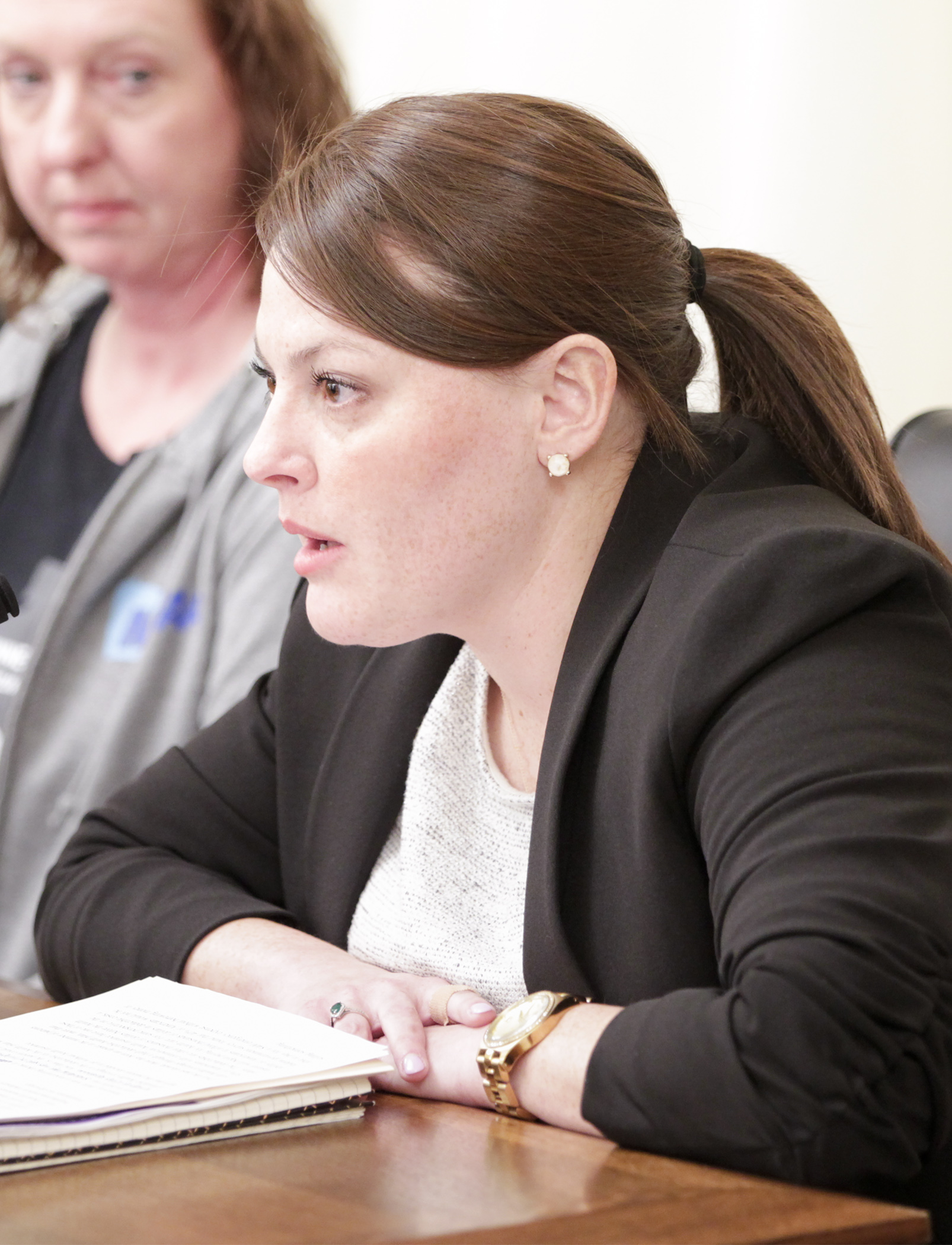Industry fees could be used to offset some insulin costs

Insulin producers could be asked to help fund access to the life-saving drug.
“According to some studies, one in four diabetics are rationing their insulin because they cannot afford it,” said Rep. Michael Howard (DFL-Richfield).
He sponsors HF485 that would establish an insulin manufacturer’s registration fee to fund an insulin assistance program. That program would serve people who earn too much money to qualify for existing public programs, but not enough to afford the cost of insulin on their own.
Called the “Alec Smith Emergency Insulin Act,” the bill was approved by House Commerce Committee Tuesday and referred to the House Health and Human Services Policy Committee.
 Kristina Moorhead, senior director of state advocacy for the Pharmaceutical Research and Manufacturers of America, testifies against a bill to direct the Department of Human Services to implement an insulin assistance program. Photo by Paul Battaglia
Kristina Moorhead, senior director of state advocacy for the Pharmaceutical Research and Manufacturers of America, testifies against a bill to direct the Department of Human Services to implement an insulin assistance program. Photo by Paul BattagliaRationing can have dire consequences, impacting health long-term and even resulting in death, said Nicole Smith-Holt. Her son, Alec, for whom the bill is named, died from diabetic ketoacidosis in 2017.
“Alec was a Type 1 diabetic and you would think for a treatment that has been around for almost a century that we would not be talking about diabetes on someone’s death certificate,” Smith-Holt testified. “… Alec was rationing his insulin because he could not afford the price of his prescriptions.”
He was diagnosed at 24 and dead at 26, a month after losing coverage on his mother’s insurance, his father, James, said. Alec never had the chance to finish learning how to navigate life with the disease.
Concerns over perceived shortcomings of the bill include problems with rebates being absorbed by health insurance and pharmacy benefit managers, according to Kristina Moorhead, senior director of state advocacy for the Pharmaceutical Research and Manufacturers of America. Rebates are the primary way manufacturers help lower drug costs, but insurers and are padding their bottom lines rather than passing the benefits on to patients, she said.
Moorhead also pointed to the high deductibles being offered with many insurances as a hurdle to medication access.
Howard acknowledged that there are many problems to address and called his bill one small piece of the solution.
Sen. Melissa Wiklund (DFL-Bloomington) sponsors the companion, SF472. It awaits action by the Senate Health and Human Services Finance and Policy Committee.
Related Articles
Search Session Daily
Advanced Search OptionsPriority Dailies
Ways and Means Committee OKs proposed $512 million supplemental budget on party-line vote
By Mike Cook Meeting more needs or fiscal irresponsibility is one way to sum up the differences among the two parties on a supplemental spending package a year after a $72 billion state budg...
Meeting more needs or fiscal irresponsibility is one way to sum up the differences among the two parties on a supplemental spending package a year after a $72 billion state budg...
Minnesota’s projected budget surplus balloons to $3.7 billion, but fiscal pressure still looms
By Rob Hubbard Just as Minnesota has experienced a warmer winter than usual, so has the state’s budget outlook warmed over the past few months.
On Thursday, Minnesota Management and Budget...
Just as Minnesota has experienced a warmer winter than usual, so has the state’s budget outlook warmed over the past few months.
On Thursday, Minnesota Management and Budget...